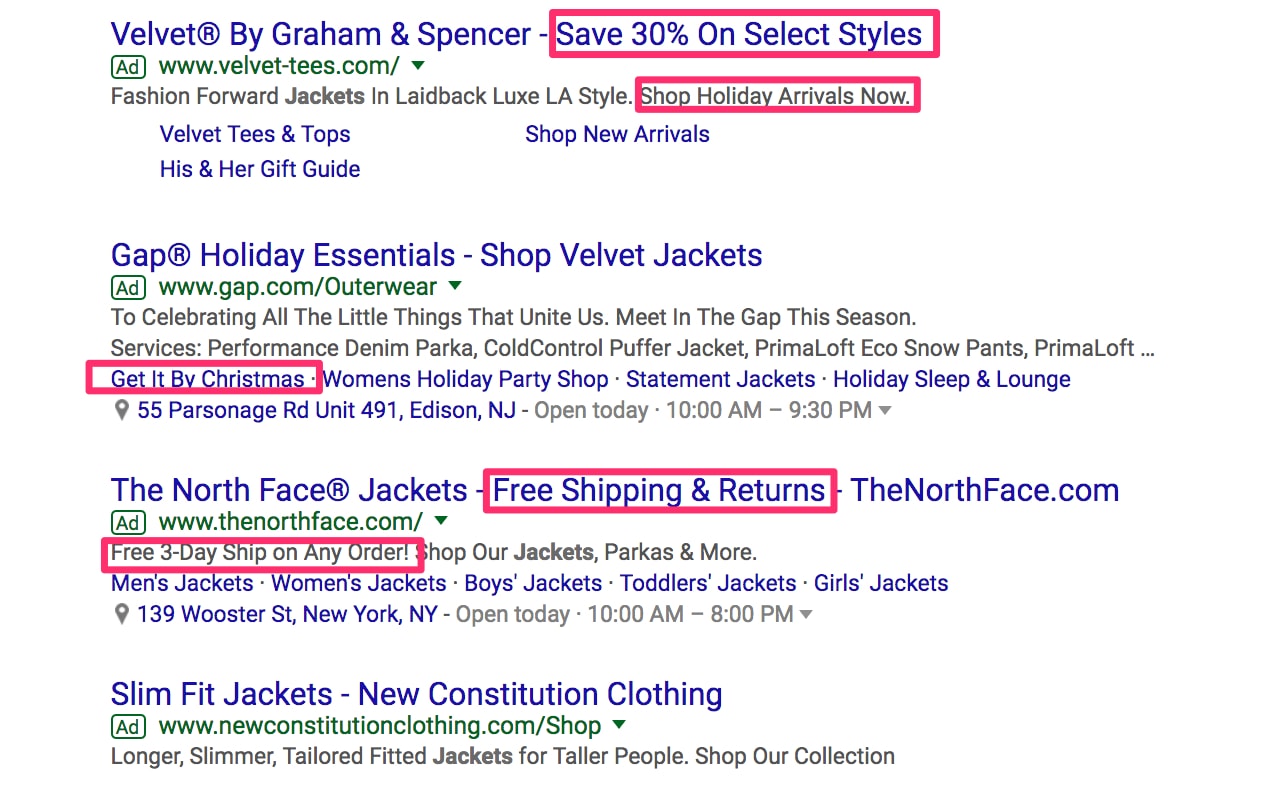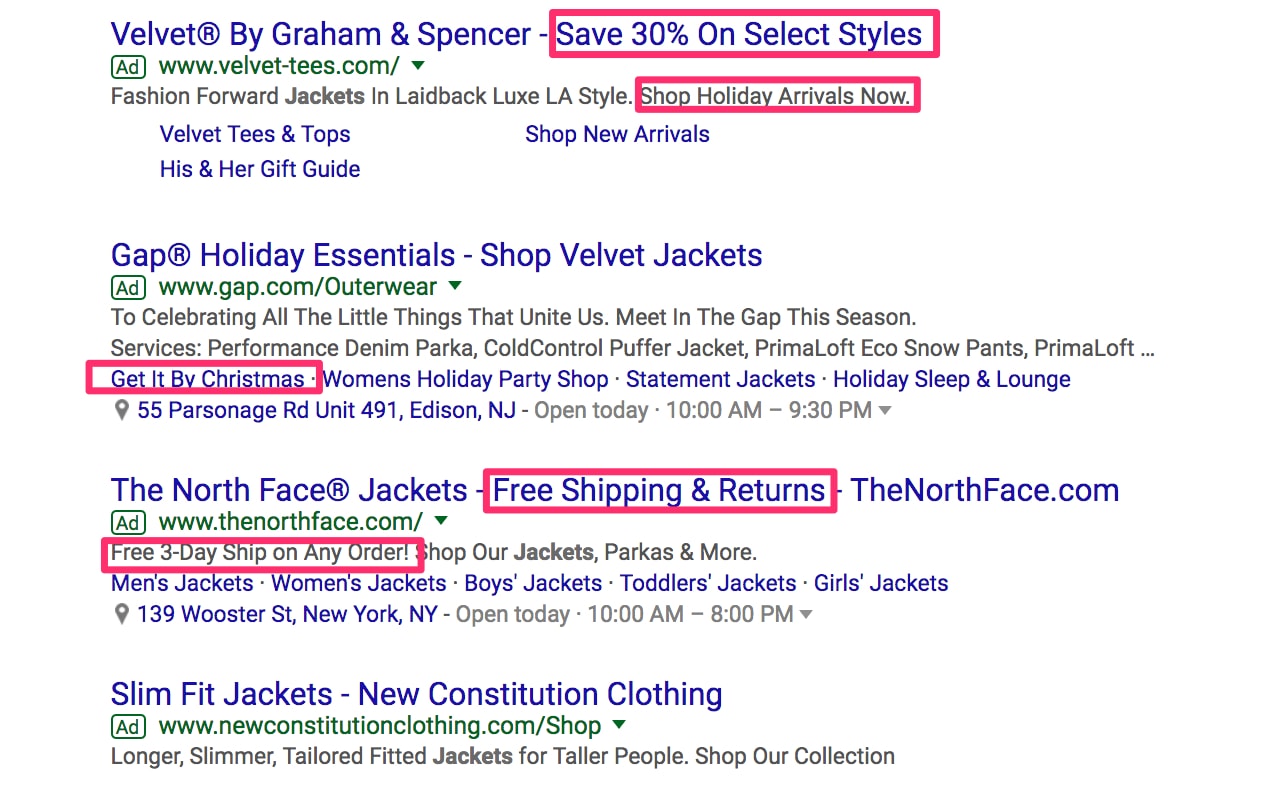But optimizing for a keyword does not necessarily mean a searcher will click on an organic search result. Meta Descriptions Perform any search on Google. Here are the ads when I recently searched on Google for “velvet jackets.” — Here are the organic results from the same search — “velvet jackets.” In the seven organic results above — with more space to write a compelling message than in the ads — there is not a single offer or incentive to drive clicks other than the Neiman Marcus listing at the bottom, which contains a timid mention of free shipping. But the messaging — the title tags and meta descriptions — is what the searchers will read, to decide if they want to click. Carefully written meta descriptions drive clicks. AdWords Keywords Frequently I’ve worked with ecommerce merchants who identify keywords that they believe are important for driving sales. However, if your company uses AdWords, there is a simple Google Analytics report that confirms important keywords, at Acquisition > Search Queries. We can also use the report to learn which keywords produce sales, to target. We can then check Search Console — Search Traffic > Search Analytics > Pages — to see if we rank for them, or if we even have relevant content that addresses those queries. Google can determine which pages rank for certain keywords.
Finding new keywords to target and developing content around them is a common practice for search engine optimization. But optimizing for a keyword does not necessarily mean a searcher will click on an organic search result. In this post, I will share two little-known tips to increase click-throughs (and sales) from organic listings.
Meta Descriptions
Perform any search on Google. Look carefully at the messages in the ads. They are carefully crafted to compel the visitor to click. It’s not click bait. It’s clearly differentiated copy to pull potential buyers and repel tire kickers. Here are the ads when I recently searched on Google for “velvet jackets.”

—
Here are the organic results from the same search — “velvet jackets.”

In the seven organic results above — with more space to write a compelling message than in the ads — there is not a single offer or incentive to drive clicks other than the Neiman Marcus listing at the bottom, which contains a timid mention of free shipping.
Perform any random search and you’ll likely see organic snippets that make little effort to entice visitors to click. Many SEO marketers assume that all that matters is ranking highly for relevant keywords. But the messaging — the title tags and meta descriptions — is what the searchers will read, to decide if they want to click.
But there is another reason why organic snippets suck. Most ecommerce merchants don’t bother to provide unique meta descriptions. They rely on the default settings of their ecommerce platforms, using the existing content on a product page, usually the first…

COMMENTS